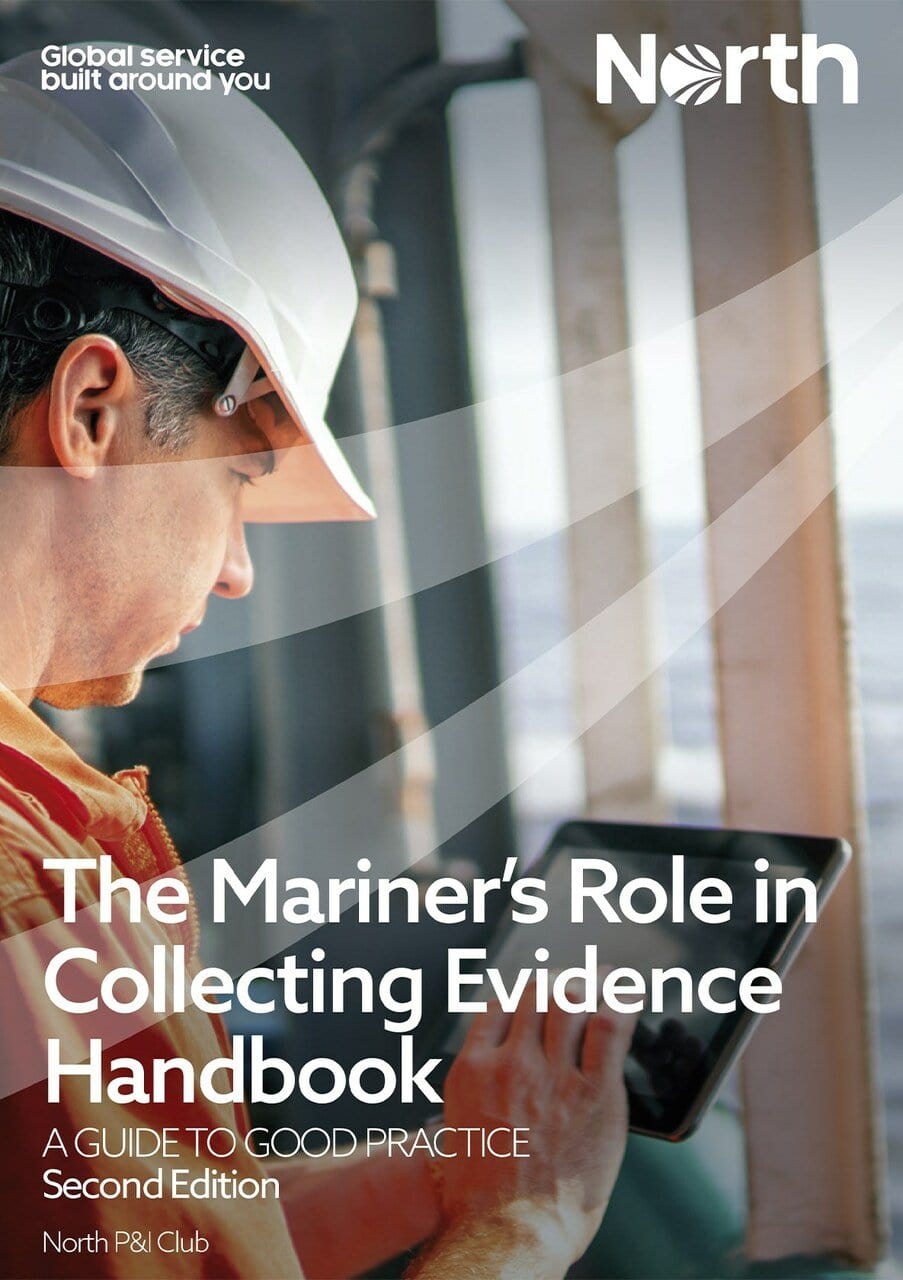This publication equips readers with the knowledge necessary to demonstrate a ship’s compliance, improve shipboard operations and determine liability when pursuing or defending a claim. Evidence checklists cover areas such as personal illness and performance warranty disputes, meaning crew are prepared for various eventualities. Detail is given on digital evidence types, explaining the practical use of electronic devices such as ECDIS and mobile phones. The publication guides readers on good reporting practice and time management, so that all evidence can be handled sensitively and without delay.
Content
1. COLLECTING AND PRESERVING FACTUAL EVIDENCE
Factual evidence
Types of evidence
Visual evidence
Witness statements
Incident report forms
Legal privilege
Preserving evidence
2. EVIDENCE REQUIRED FOR MOST INCIDENTS
General evidence
3. EVIDENCE FOR INCIDENTS INVOLVING PEOPLE
People evidence
Personal injury
Personal illness
Disciplinary action
Industrial action
Stowaways
Persons in distress
Geographical diversions to save life
4. EVIDENCE FOR INCIDENTS INVOLVING CARGO
Defending cargo claims
Contractual responsibility
Incidents involving dry cargo
Incidents involving liquid cargo
Incidents involving containerised cargo
5. EVIDENCE FOR POLLUTION INCIDENTS CAUSED BY THE VESSEL
Types of pollution incidents
Oil pollution
Noxious and harmful substance pollution
Sewage pollution
Garbage pollution
Air pollution
Ballast water pollution
6. EVIDENCE FOR INCIDENTS CAUSED BY THE VESSEL
Ship-related incidents
Collision
Damage to FFO
Non-contact damage
Grounding, stranding and sinking
Salvage and general average
7. EVIDENCE FOR H&M INCIDENTS
H&M insurance claims
8. EVIDENCE FOR COMMERCIAL DISPUTES
Commercial disputes
Newbuilding warranty disputes
Port delay disputes
Performance warranty disputes
Port and berth safety disputes
Bunker quality disputes
Bunker quantity disputes
INDEX
Information
Number of Pages: 100
ISBN: 9780995565357
Book Height: 210 mm
Book Width: 150 mm
Weight: 0.3 kg
Author: North P&I Club
Published Date: August 2021








